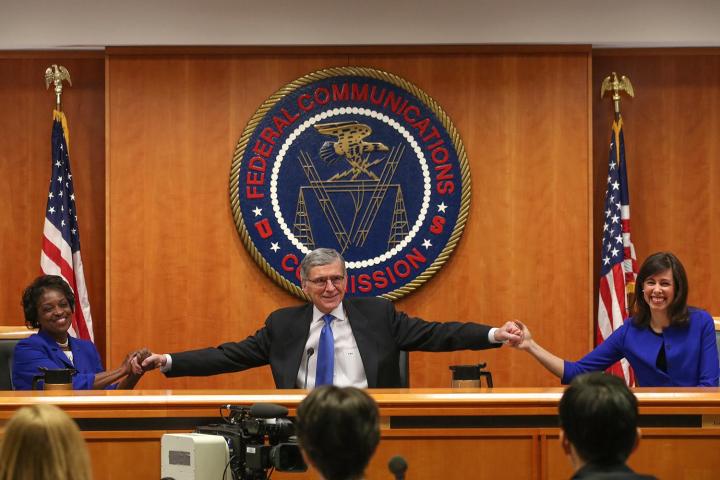
The issue, FCC Chairman Tom Wheeler says, lies in the manner in which the term “rate regulation” is defined within the bill. Because there’s so little specificity in the language of the legislation, Wheeler fears that the FCC could be barred altogether from managing situations like the blocking and throttling of sites and speeds. Furthermore, the FCC could also be rendered powerless to stop Internet Service Providers (ISPs) from implementing data caps in a potentially discriminatory fashion.
Representatives behind the bill insist that the FCC has exceeded its statutory authority and must be reined in. “We all know that what they’d like to do is regulate the Internet so they can tax the Internet, so they could then come in and set all the rates,” Republican Representative Marsha Blackburn said, according to the Associated Press.
And industry folks also appear quite pleased by these latest developments.
A stable regulatory framework that excludes price controls spurs greater investment in broadband networks,” the American Cable Association said, adding that while Wheeler may have promised not to over-regulate, this bill “shields the market from action taken in this area by future FCC leaders who might not feel bound by promises made by earlier FCC officials.”
CenturyLink also noted that it was surprised “that there’s any opposition to this bill given that the administration has stated on multiple occasions that it is not interested in regulating broadband prices.”
Even so, it looks as though the Obama administration is planning on vetoing the bill regardless, especially considering that Friday’s vote was largely split down party lines, with Democrats voting against the legislation.
“This bill redefines ‘rate regulation’ to mean any action that involves a rate, not simply the setting of a rate as is understood today by the general public and even the Supreme Court,” consumer advocacy group Public Knowledge said in a statement. “This bill goes beyond the forebearances of the Wheeler-led FCC to eliminate the ability for the FCC to even review the reasonableness of a rate. It is an invitation to monopoly level rates by ISPs, since few Americans have more than one or two choices for high-speed broadband.”


